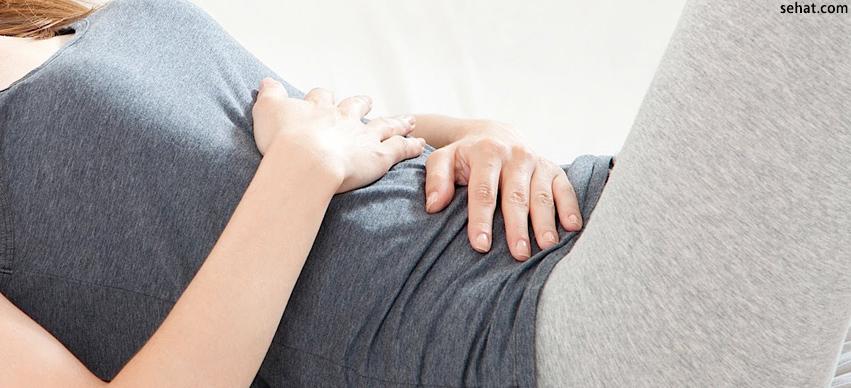
Have you ever suffered from abdominal or stomach pain? Have you ever experienced stomach ache after eating food? Have you ever got up from bed in the middle of the night clutching your stomach and complained of severe stomach ache? Don't worry - you are not alone. There is no person who would not have suffered from stomach ache at some point during his or her lifetime.
Millions of people all over the world suffer from stomach ache - and it is usually not serious - you just pop in a couple of antacids or pain killers and it's gone. But, severe abdominal pain is something that you should ignore as it is a matter of great concern. If your stomach ache starts suddenly, it should be considered as a medical emergency, and you should rush to the doctor at once.
Why Do You Get Stomach Aches?
Whatever be the type of abdominal pain that you may have - mild stomach ache, sudden sharp pains, or abdominal cramps - they may be due to any or some of the following reasons:
- Indigestion
- Constipation
- Stomach virus
- Food poisoning
- Food allergies
- Menstrual cramps
- Gas
- Intolerance to milk and milk products
- Kidney stones
- Gall stones
- Hernia
- Crohn's disease
- Urinary tract infection
- Appendicitis
- Gastroesophageal reflux disease
Symptoms
If you have severe abdominal pain along with any of the following symptoms, you have to contact your doctor immediately:
- Fever
- Inability to retain food down
- Inability to pass stools, especially if you are vomiting
- Painful and frequent urination
- Painful and tender abdomen, which lasts for a long time
Let's Take a Look at The Probable Causes:
- If you feel a burning sensation just below your breastbone, after a large meal, the cause could be heartburn. Take a couple of antacids to get relief from pain.
- If you feel pain around your navel accompanied by gas it could be constipation or flatulence. A laxative or anti-gas medication should set you right.
- If you experience sudden pain around your navel, which may be accompanied by nausea, fever, vomiting, loss of appetite, stiffening of the abdominal muscles along with the urge to pass stools, then it is a case of appendicitis. You have to rush to the hospital.
- If you have pain in the right side of your abdomen that spreads to other parts of the abdomen or back, you may have gallstones or gall bladder inflammation. Consult your doctor.
- Pain below your navel that radiates to either side is an indication of a colon disorder, a urinary tract infection, or pelvic inflammatory disease. You will have to consult your doctor.
- A sudden sharp pain near your lower ribs that goes down to your groin may indicate kidney stones or a kidney or bladder infection. You have to go and see your doctor.
- If you experience sudden pain and tenderness in your lower left abdomen along with fever, nausea or vomiting it could be Crohn's disease, ulcerative colitis, or diverticulus. Consult your doctor.
- Sudden pain along with dysentery, bloody stools, or vomiting blood is a possibility of a blockage in the bowel, perforated appendix, or bleeding from the bowel. This indicates internal bleeding and you have to rush to the hospital.
Diagnosis
When you go to the doctor, he/she will perform a physical exam and ask questions about your medical history and symptoms to determine the cause. You may be asked detailed questions such as:
- Type of pain - sharp, dull, radiating, stabbing or severe
- Location - whether spread over or localized
- Time of pain - at specific times, morning, night, afternoon, or always
- Whether the pain is persistent, or whether it comes and goes
- Duration of pain
- Does it come after eating certain types of food
- Does it come after drinking alcohol
- Does it occur during menstruation, before menstruation, or after menstruation
- Does the pain radiate to the lower back, shoulder, groin, and buttocks
- If you are taking some other medication
- What are the other medications you are presently taking
- If you are pregnant
- Does any activity that you do increase/decrease the pain
- History of previous injuries
Based on the initial evaluation, your doctor may ask you to undergo some tests to find out the cause of pain. They may include stool tests, urine tests, blood tests, enemas, x-ray, ultrasound, endoscopy, or CT scan.
Treatment
For mild symptoms, you can treat the symptom with over-the-counter medication.
- For heartburn or gastroesophageal reflux, take an antacid.
- A mild stool softener or laxative should be taken for constipation
- For any pain take a common painkiller.
But, You Should Definitely Go To a Doctor or a Hospital If:
You have severe abdominal pain for a number of daysYou have fever, nausea, and are not able to keep your food downYou vomit bloodYou have bloody stoolsYou find blood in your urineYou have vomiting, but cannot pass stoolsYou have difficulty in breathingIf your heartburn doesn't come down through OTC medicines
Home Remedies
There are a number of home remedies that can effectively relieve you from abdominal pains and cramps. For mild pains, just lying down and taking rest is quite effective. Fomentation with a hot water bottle will relax cramped muscles and increase circulation to the abdominal area.
If you are suffering from indigestion, warm lemon water is a good pain reliever. Chewing fennel seeds also helps.
There are also a number of ways to reduce pain or get rid of get rid of pain altogether. Natural prevention is definitely better than cure and so avoid food and drinks that are likely to trigger abdominal pain.
You know the old adage that says 'Prevention is better than cure' - don't you think it is better to follow it?

